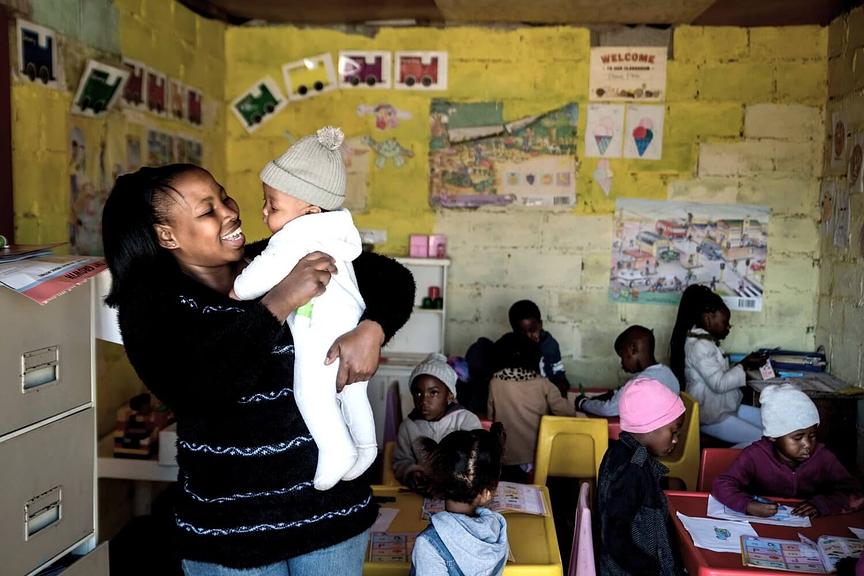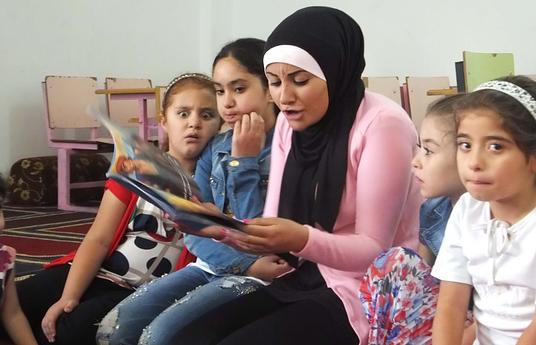What we do?
Sakha Esethu can be best described as a gathering which provides mutual support for caregivers of children on burning health issues through dialogue and conversation. This is a 6 – 8 month programme which encourages training and mentorship by a trained faciliator. Sakha Esethu means "It starts with us, we’re building our own". This active phrase emphasises the active role that community members, mothers, fathers, teachers or grandparents - anyone interacting with children can assist in the development of a child. We have developed resources to host small discussions with parents and community members. Sakha Esethu includes all genders and seeks to promote community participation by utilising the energy of trained community mentors and competent caregivers.
Free online resources have been developed to host short discussions with parents and community members. The interactive website www.sakhaesethu.com has been created as a platform to access resources and training materials to host your own conversations and gatherings. As a result of the skills development initiative, mentoring and support there are mentors in Nelson Mandela Bay who have shown outstanding commitment to developing their communities.
Why we do it?
Community conversations encourage dialogue and active engagement for new or old parents to gain valuable knowledge. Conversations using these pamphlets should promote sharing and an opportunity to support parents at an early age.
Benefits include:
- Support through knowledge regarding children’s health & parenting
- Safe spaces for sharing and encouragement
- Decreased stigma and anti-bias towards
- HIV/AIDS and illness
- Promotion of exclusive breastfeeding
- Increased belonging and social relationships
- Improved community unity
- Improved confidence as a parent
- New Leadership and role models in communities
- Creation of a supportive community culture
- Active participation in building community
Background to Parent Support Groups in Nelson Mandela Bay, South Africa
There were no known breastfeeding support groups operating in NMB- and Amathole health districts when this project was initiated. Accordingly pregnant or breastfeeding women could only receive accurate information and breastfeeding peer support at primary health care facilities. However, financial constraints among the predominantly unemployed population makes travelling, even a few kilometres, challenging and thus breastfeeding mothers are often in a situation where their only support includes uninformed family members and the equally inexpert surrounding community. Furthermore, community members have little confidence in the confidentiality of HIV related services at health facilities, resulting in a reluctance to use testing and counselling services in their area of residence. Community care workers that are supposed to visit new mothers at home by day 6 after discharge, often do not get to them in time to prevent introduction of other foods in the first few weeks post-delivery. Furthermore, they are mostly unable to provide continued support in the form of repeated visits and counselling to ensure the sustainability of breastfeeding. With this in mind and based on previous qualitative research where communities requested more opportunities to discuss HIV and breastfeeding, the research team decided to explore the viability of establishing peer support groups in various communities. These would be co-ordinated by a trained mentor, who would assist attendees to not only change community perceptions about HIV, breastfeeding and child health through dialogue and storytelling, but also utilise the mentor’s skills and confidence to encourage clinic referrals for those whose condition warrants the input of a health professional.
Tools and Resources
Tools used for the project monitoring and evaluation, included amongst other: Baseline demographic questionnaire; Attendance registers; Support group meeting records; Focus group discussions; Activity and feedback records. The Sakha Esethu toolkit include all tools used during all phases of the programme. These are free available on the Sakha Esethu website.
The concepts of this successful programme, namely dialogues within support group environments intended to change health risk behaviour, should be embedded in the training programmes of ECD practitioners and health promotors trained by NGOs and Department of Health, to allow them to “start building their own communities” as reflected by the name – Sakha Esethu.



